Church Leaders are seeking to be involved in consultation around the form of the proposed community sponsorship refugee programme.
Background
New Zealand can and should welcome more refugees and asylum seekers. There is untapped willingness from within church communities to support refugee resettlement.
Over the past 12 months this has been demonstrated by Catholic and Anglican support to contribute household and food items and to set up homes for 104 former refugee households in Wellington.
Churches also play a key role in resettlement efforts in other centres, perhaps most notably Dunedin which has now been opened up as a refugee resettlement centre thanks to strong support and lobbying from the local community.
We strongly support the special intake for Syrian refugees and the announced increase in the quota.
We welcome the creation of a pilot community sponsorship model for 25 refugees.
This model of refugee intake is implemented in various OECD countries. However, the balance of rights and responsibilities between government and community groups vary significantly from country to country.
Of these options the Canadian scheme, which started in 1979, is regarded as one of the longest lasting and most successful of the models.
We were pleased to discuss this question at this meeting last year between the Prime Minister and Deputy Prime Minister and Church Leaders.
We were pleased with the acknowledgement by then Prime Minister John Key that a community sponsorship model would require support from the government, at a minimum in the form of healthcare and education.
Few, if any, New Zealand Church groups would be in a position to be able to take on the full costs of supporting all costs of resettlement include healthcare, education, income support and housing, on top of other resettlement costs and support.
However, Churches are likely to be among adopters of the community sponsorship scheme, if it can be structured appropriately.
One key consideration is that the introduction of a community sponsored refugee category must be in addition to the current UNHCR refugee quota and refugee family support categories.
We understand that the Ministry of Business, Innovation and Employment has prepared a paper on options for this model.
Churches have not yet been consulted on the development of this scheme, despite requests from the Church Leaders’ advisors group through the office of the Deputy Prime Minister.
Caritas was informed by the Ministry of Business, Innovation and Employment consultation would take place in the first quarter of 2017.
We would like to contribute to the development of this scheme, including discussing what elements are able to be taken from overseas examples of similar schemes such as the Canadian model.
Some of the areas in which we would like to contribute our perspectives include:
Selection of sponsored former refugees
In the Canadian community sponsorship, the Catholic Toronto Diocese advises us that - in most instances - the selection of refugees is made by the sponsoring organisation, rather than by UNHCR or other organisations.
Level of support required
Incoming refugee families should have access to the same healthcare, education as other New Zealanders and selected social services.
New Zealand churches could be able to support resettlement costs, accommodation and household items, community and social support, and support towards employment.
Selection and screening of sponsoring groups
The safety and wellbeing of sponsored families is very important, and their autonomy and privacy must be respected.
Churches would expect to implement screening processes in the selection of sponsoring groups, and for sponsoring groups to be willing to participate in training and to receive support.
Religion of sponsoring and sponsored groups
Church groups have different perspectives on whether it is appropriate to allow for the support of specific faith groups.
In some cases the motivation to wish to sponsor comes out of an existing relationship between two communities of the same faith, and it improves the chances of a good settlement outcome where people have an existing community to join on arrival.
However, we are also committed to an inclusive scheme that does not discriminate on the basis of religious faith.
We would be happy to assist MBIE in contributing our perspectives to developing guidelines around these issues.
Ensuring support for sponsored refugee families if the circumstances of sponsors changes
If a sponsoring group is unable to follow through within planned support for reasons beyond their control, there will need to be a plan to ensure refugee families can still settle well.
We have additional suggestions for policy initiatives that could assist New Zealand to take more refugees through enhanced refugee family reunification. This ensures that refugees are coming to a place where they already have local connections, and is able to contribute to better outcomes for local refugees, particularly where it resolves unmet needs. Some options include:
Increasing the intake through the refugee family support category
Noting that there are many applications already queued in this category, and NZIS already has the staff and systems to be able to process an increased intake.
Softening the requirements for entry under other immigration categories where refugee family reunification is involved
Church Leaders would also like to see greater consideration to resettlement to New Zealand of asylum seekers currently detained in Manus Island and Nauru, and the resettlement of unaccompanied minors.







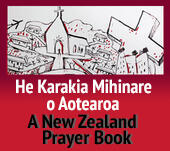
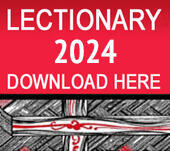

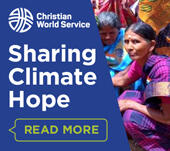
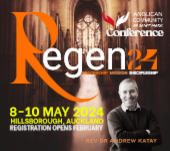
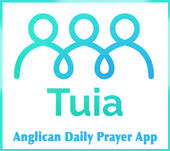




Comments
Log in or create a user account to comment.